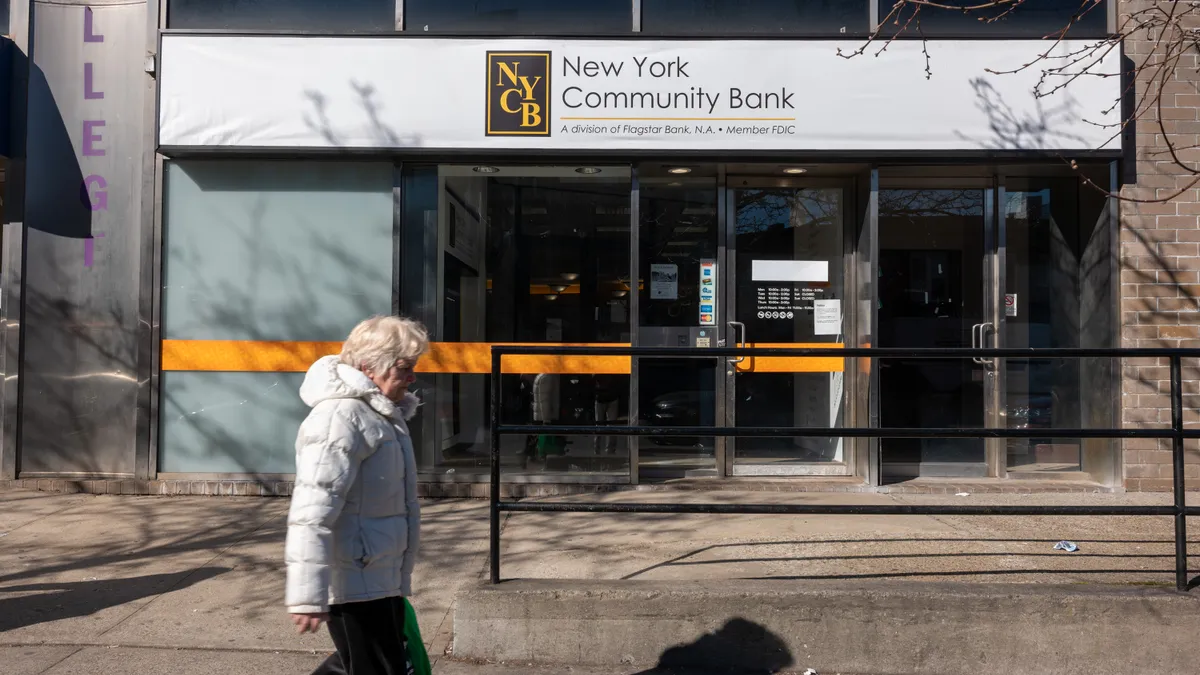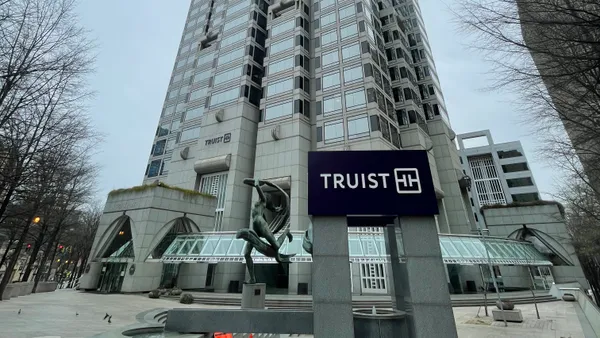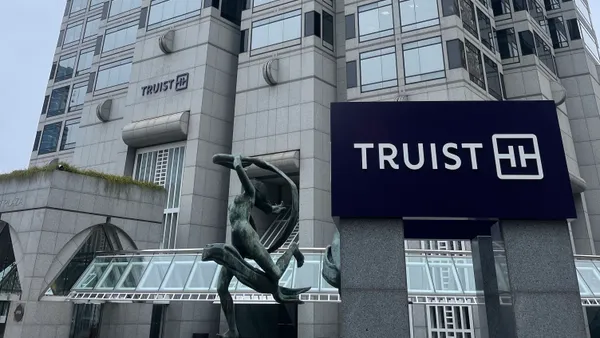Dive Brief:
- New York Community Bank subsidiary Flagstar is selling its residential mortgage servicing business to nonbank mortgage firm Mr. Cooper for $1.4 billion, the bank announced Thursday.
- The sale, which includes the bank’s mortgage servicing rights and third-party origination platform, is projected to close during the fourth quarter, the bank said.
- The announcement came on the day the bank reported a loss of $323 million in its second-quarter earnings.
Dive Insight:
NYCB’s spinoff of residential mortgage services reflects the bank’s ongoing efforts to simplify its business and diversify its loan portfolio, as it plots a turnaround.
The quarterly loss the lender reported Thursday is slightly better than the $327 million loss it saw in the first quarter — and far better than the $2.7 billion slump it reported in last year’s fourth quarter. In those January earnings, a surprise $252 million loss — credited to commercial real estate exposure — spurred a tailspin in the bank’s share price. That only deepened when the bank restated that quarter’s earnings and took a $2.4 billion impairment charge.
By comparison, 2023’s second quarter saw $413 million in positive net income, according to the bank.
Executives on Thursday’s earnings call suggested there may be more divestitures in the offing.
“We do think there is an additional $2 [billion]-$5 billion of non-core activities that we will be evaluating that we would look to execute on between now and the end of the year,” CEO Joseph Otting said.
The bank on Monday said it had closed on the sale of $5.9 billion in mortgage warehouse loans to JPMorgan.
Otting said Thursday that both sales are “important milestones” as the company seeks to strengthen its balance sheet.
“While the mortgage servicing business has made significant contributions to the Bank, we also recognize the inherent financial and operational risk in a volatile interest rate environment, along with increased regulatory oversight for such businesses,” Otting said. “We are focused on transforming the Bank into a leading, relationship-focused regional bank. Consistent with that strategy, we will continue to provide residential mortgage products to the Bank's retail and private wealth customers.”
Amid the transformation, the bank has also brought on nine more executives, to “further enhance the Company's oversight of core businesses and client-focused operations,” NYCB said in a Tuesday release. Among them are Richard Raffetto, president of commercial and private banking, who worked with Otting at U.S. Bank, and Kris Gagnon, chief credit officer, a veteran of OneWest Bank.
In five months, the leadership team has overhauled the company’s culture, Otting said Thursday.
“We’ve clearly changed the quality of the people that are in the organization,” he said.
Separate from the mortgage divestitures, the bank aims to cut $300 million in costs, and the bank is “well on our way” to achieving that by the end of the year, Otting said. Some cost-cutting actions could continue into 2025, CFO Craig Gifford noted.
As NYCB assesses what it considers core or non-core, it comes down to where the bank has a relationship with the borrower, Otting said. Instances where there’s limited interaction with a customer or little potential for the relationship to grow are being labeled non-core.
The bank also continues work to reduce its exposure to commercial real estate: Currently at about $45 billion, the bank seeks to whittle that to between $30 billion and $33 billion long term, Otting noted. NYCB recorded nearly $1 billion in CRE payoffs during the quarter, with three-quarters of that being multi-family properties, Gifford said.
The bank is projecting about 40% of the CRE portfolio should pay off in the third quarter, but following a comprehensive review of the portfolio, NYCB is largely focused on reducing substandard and non-accrual loans between now and the end of the year, Otting said. The company set more aside $390 million for credit losses in Q2, up from $315 million last quarter, reflecting a rise in charge-offs.
“This is still three organizations that haven’t really totally consolidated — they’ve combined but not consolidated,” Otting said, adding that executives will be “highly focused not only on cost structure” but on processes within the company.
The mortgage servicing divestiture is expected to add about 60 basis points to the bank’s common equity tier 1 capital ratio, which NYCB put at 11.2% for the second quarter.
Otting said the bank has had a strong relationship with Mr. Cooper, adding that he views the divestiture as a “good and easy transition.”











